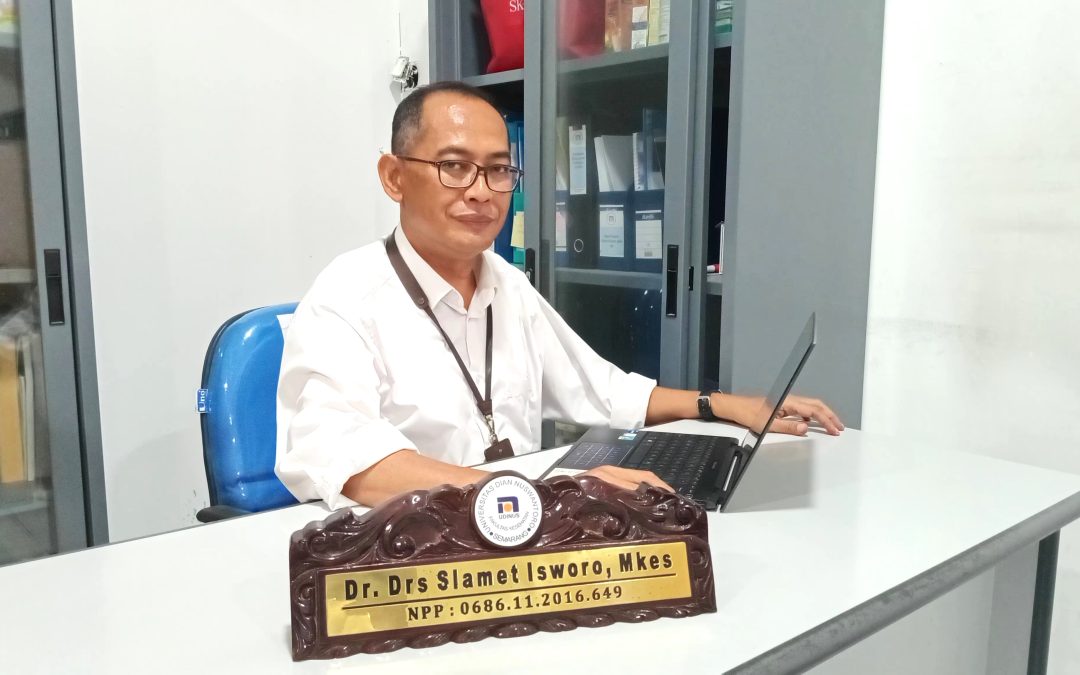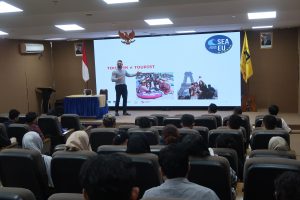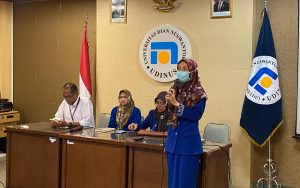Recent research conducted by Dr. Drs. Slamet Isworo, M.Kes., a lecturer from the Faculty of Health Science at Universitas Dian Nuswantoro (Udinus), revealed that the indigenous bacteria could be used effectively in a bioremediation process to reduce the Chemical Oxygen Demand (COD) and anomia level in liquid waste at the Fish Auction Center of Bajomulyo, Juwana-Pati.
The research paper was published in the Microbiology Research Journal International. During the research, Dr. Slamet Isworo and a student from the Health Science Faculty at Udinus, Novy Cantika Dewi, tested the effectiveness of local bacteria in reducing organic pollution. Dr. Slamet found that Isolate 2, which had 99% similarity to a bacteria known as Streptomyces heilongjiangensis strain FREP 14, had the best potential in reducing COD and ammonia levels.
The test result showed that the COD parameter was reduced from 6,666.7 mg/L to 5,566.7 mg/L, meanwhile, the ammonia level dropped from 34.2 mg/L to 13.3 mg/L.
“These reductions are very significant, showing that Indigenous bacteria can serve as a natural solution in managing waste in the fish auction center, which hadn’t been optimal,” he explained.
According to Dr. Slamet, the Fish Auction Center of Bajomulyo had sanitation problems as a result of the lack of proper waste management. The waste mainly comes from fish washing and cutting, which was often dumped away without any form of proper management.
“If not handled, the pollution could badly impact the water ecosystem, and could potentially be a public health hazard,” he said.
In the research, the team used the experiment method, using isolation and bacteria selection processes. After that, the team would identify the bacteria using the genetic molecular analysis.
“We ensured that the bacteria were natives of the area so that the bioremediation process could be more effective and sustainable,” he added.
Dr. Slamet hoped that the research could serve as a foundation for the fish auction center management and the local government to implement the bioremediation technology as an eco-friendly solution in handling fishery waste.
"We are ready to cooperate to create a safe environment without disrupting fishermen’s economic activities,” he concluded. (Humas Udinus/Alex. Foto: Humas Udinus)







